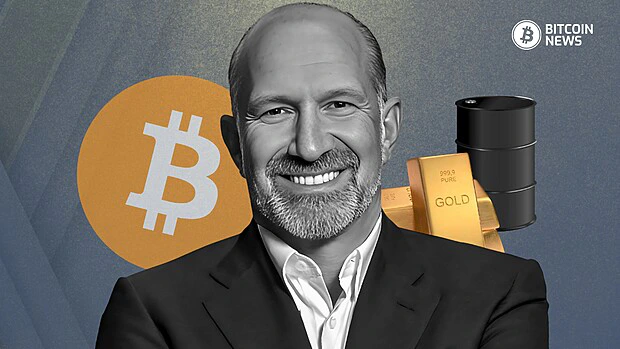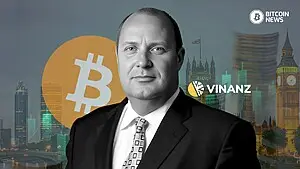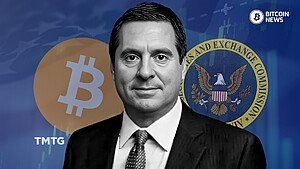Howard Lutnick, CEO of Cantor Fitzgerald, has become one of the most vocal advocates for treating bitcoin not just as a digital currency but as a scarce commodity.
His argument centers on the idea that bitcoin should be viewed in the same light as traditional commodities like gold and oil. During a recent interview with Fox Business, Lutnick emphasized this point, stating:
“Bitcoin is a commodity. It should be treated like gold and like oil. It’s just a commodity. Other digital assets? [They] are different. But bitcoin is a commodity.”
According to him, bitcoin’s limited supply and decentralized nature make it a valuable resource that should be embraced by the financial world, much like other scarce commodities that have long served as stores of value. He added:
“[Regulators] don’t know how to [handle] crypto or digital at all… It’s just platitudes… They have no idea what they are talking about […] they still don’t understand how important it is to get it right.”
This perspective is not entirely new, but Lutnick’s influence in the financial sector gives his words weight.
As the head of Cantor Fitzgerald, one of the largest investment banks in the U.S., his endorsement of Bitcoin’s commodity status signals a growing acceptance of the digital asset among traditional financial institutions.
It also comes at a time when the regulatory landscape for digital assets is still evolving, with many experts calling for clearer guidelines.
Lutnick’s reasoning for treating Bitcoin like gold and oil is grounded in several key factors.
First, bitcoin has a finite supply—only 21 million coins will ever be mined. This scarcity is similar to that of precious metals like gold, which are limited in quantity and therefore often seen as reliable stores of value.
As demand for bitcoin increases and its supply remains fixed, Lutnick believes it will continue to appreciate in value.
Secondly, bitcoin’s store-of-value function has been proven over time, especially during periods of economic uncertainty. Much like gold, bitcoin is increasingly seen as a hedge against inflation and a safe haven for investors looking to preserve capital.
Lutnick highlighted this role, drawing parallels between bitcoin and traditional commodities, stating, “When you truly understand Bitcoin, it’s hard to see it any other way.”
Moreover, bitcoin is traded on global markets, with prices fluctuating based on supply and demand.
Traders worldwide buy and sell bitcoin, and its value is determined by the market forces of buying and selling, much like other commodities. This has led to comparisons with oil, which is similarly influenced by global trading and market dynamics.
Finally, the mining process for bitcoin is often likened to the extraction of natural resources such as oil and gold.
Just as physical mining requires significant capital and effort, Bitcoin mining demands computational power and energy, further reinforcing the notion that Bitcoin is akin to a physical commodity.
Cantor Fitzgerald’s engagement with Bitcoin goes beyond just advocating for its commodity status.
Earlier this year, the firm launched a $2 billion bitcoin lending program, providing leverage to bitcoin holders. This move allows investors to borrow against their bitcoin holdings, offering liquidity and enabling greater participation in financial markets.
Lutnick’s predictions go even further. He envisions a future where commodities and equities will converge, a process he believes will take at least two decades. In his view, bitcoin will eventually be treated like gold, a development that could drastically alter its price and market behavior.
While this convergence is still a long way off, Lutnick’s forecast has gained support from many in the financial community, especially as more institutional investors begin to recognize Bitcoin’s potential.
The launch of Bitcoin exchange-traded funds (ETFs) by major players like BlackRock and Fidelity has already signaled growing institutional interest in digital assets.
It’s important to note that while Lutnick is a strong advocate for Bitcoin, he has been careful to differentiate it from altcoins. He views bitcoin as a unique asset with characteristics that set it apart from other digital currencies.
According to Lutnick, Bitcoin’s decentralization, finite supply, and global trading infrastructure make it fundamentally different from the thousands of other “cryptocurrencies” in existence today.
One of the key issues surrounding Bitcoin’s future is the need for clear regulations. Lutnick has been vocal about this, emphasizing the importance of a coherent regulatory framework that recognizes bitcoin’s status as a commodity.
He noted that current regulatory bodies often lack a deep understanding of the digital asset space, leading to confusion and inconsistent regulations.
Lutnick noted that the regulators need to understand what they’re dealing with, calling for informed and accurate rules that would help Bitcoin thrive in a safe and regulated environment.
Howard Lutnick’s views on Bitcoin represent a significant shift in how the financial world is beginning to perceive the digital asset. By advocating for Bitcoin’s classification as a commodity, he is helping pave the way for its integration into traditional financial markets.
His predictions about the future convergence of commodities and equities, along with Cantor Fitzgerald’s involvement in bitcoin lending, show that bitcoin is becoming an increasingly important asset for both retail and institutional investors.










